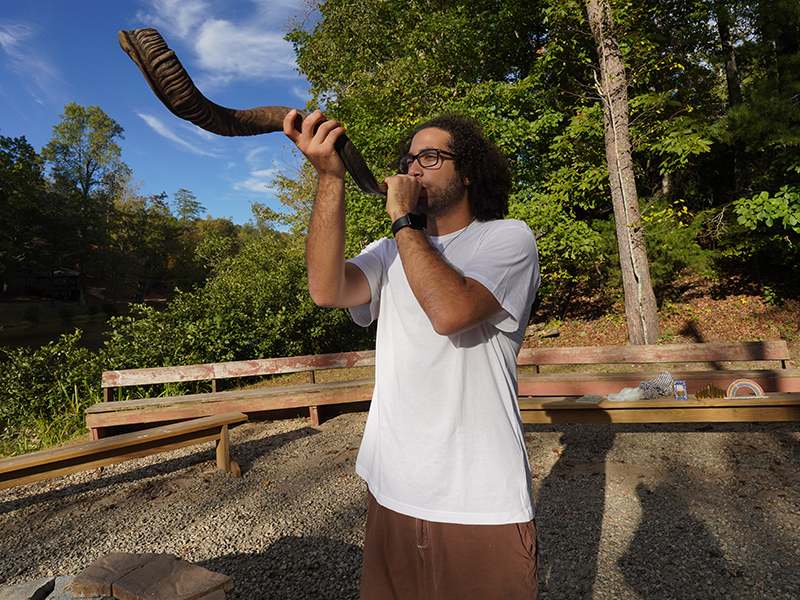Typically, when we study Torah, we start at the beginning, ask questions, find ourselves searching for an answer, and inevitably ask more questions. This time, however, let us try studying this parashah the other way around. If Joshua is the answer, what is the question? Joshua was to be the one to lead the Israelites into the land, not Moses. The question, therefore, is, “who will lead the people into the Promised Land?” In my opinion, it could never have been Moses, even if he had never struck the rock.
To be clear, Moses’s leadership and contributions will forever be praised and honored in Judaism. But Moses was so close to the people and such a huge part of their history that he could only see them as they had been with him: throughout the Exodus, wandering in the desert, and to the point where we find ourselves in Parashat Vayeilech. A perfect example can be seen in Deuteronomy 31:26-27:
“Take this book of the law and put it beside the ark of the covenant of the Eternal your God; let it remain there as a witness against you. For I know how rebellious and stubborn you are. If you already have been so rebellious toward the Eternal while I am still alive among you, how much more after my death!”
For Moses, it has been a marathon, certainly not a sprint. It is not surprising that he does not have a great deal of faith that the people will follow the laws that God has given them in the future without him. While these feelings are valid, and we can certainly empathize with him, the truth is that the Israelites needed a leader without Moses’s history and baggage to have the best chance of fulfilling God’s commandments. Joshua had not experienced the trauma Moses had.
In his last days, Moses is trying his best to lay the foundation for a leadership change by addressing all the people in Deuteronomy 31:12-13. The Israelites are heading into a new land with a new leader, but Moses clearly says the old rules still apply wherever the people go. He addresses the entirety of the populace. These people may not be the elite, but they must also observe all of God’s commandments; they are not absolved from this responsibility. Though Moses may not be there to see the next step of the journey, his words and deeds will remain with the Israelites.
Sometimes our own life experiences may mean that we cannot finish a journey, but that does not mean that the journey was pointless or had no worth.
In Deuteronomy 31:23, God is very clear that Joshua should be the person who should be listened to:
“Then the Eternal commissioned Joshua, son of Nun, and said, ‘Be strong and bold, for you shall bring the Israelites into the land that I promised them; I will be with you.’”
There would still be a leader and there would still be the Torah and its laws. Not only would God be with them as they entered the land, the legacy of Moses would reside with the people forever.
We have moved from Moses being a leader who could be described as a confidante of God, to Moses relinquishing his leadership role to Joshua, to Joshua preparing to lead the Israelites into the Promised Land. Joshua was not chosen in the same way Moses was, but he was definitely chosen by God.
Joshua had been by Moses’s side for so long that he was the choice to lead both spiritually and militarily. We have transitioned from having doubts about what will happen in the future to having confidence in the new leadership of Joshua and the belief that the Israelites will enter the land and succeed.
Explore Jewish Life and Get Inspired
Subscribe for Emails


